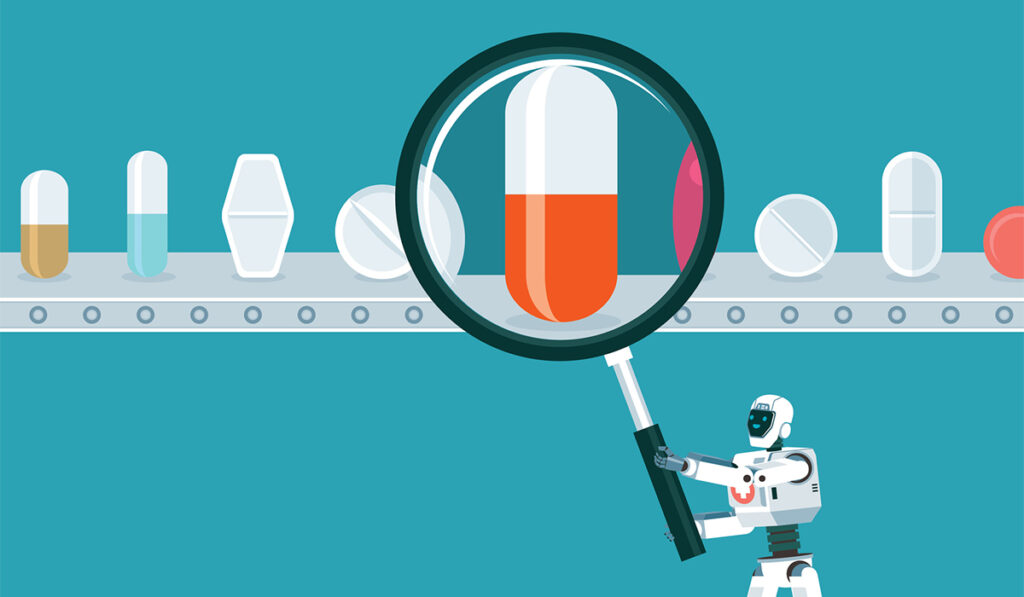Vanderbilt researchers have developed an artificial intelligence (AI)-driven screening tool to identify existing drugs that could help lower the risk of Alzheimer’s disease and heart disease.
Analysis of data from Vanderbilt’s large electronic health record provided the names of three existing drugs that may protect against Alzheimer’s disease, said Wei-Qi Wei, M.D., Ph.D., associate professor of biomedical informatics at Vanderbilt University Medical Center. He said the drugs identified were originally developed for treatment high blood pressure, diabetes and infections and emerged as the top three hits among 10 drugs surfaced by AI’s data dive.
“Our findings suggest that emerging AI technologies like ChatGPT can significantly expedite the process of extensive literature review for current research and offers a streamlined new framework for drug repurposing that can be applied to numerous diseases,” Wei said.
Discovering novel uses for existing drugs can reduce the time, cost and risk of failure associated with new drug development, Wei said. A prime example is GLP-1 inhibitors, such as Ozempic, which was originally approved for diabetes and now serve as popular obesity drugs.
Drug Repurposing
Drug repurposing hinges on identifying promising drugs from a large collection of candidates. That’s where AI comes into play.
“ChatGPT can provide valuable insights about potential novel uses for existing drugs by comprehensively synthesizing the literature and decoding this knowledge to suggest novel drug targets,” Wei said.
“Our findings suggest that ChatGPT expedites the process of extensive literature review and offers a streamlined new framework for drug repurposing that can be applied to numerous diseases.”
The meta-analysis, supported by National Institute on Aging, also included data from the All of Us Research Program. The results identified the diabetes medication metformin, the blood pressure drug losartan, and the antibiotic minocycline as having the potential to decrease the risks of Alzheimer’s disease after age 65.
Metformin showed the strongest signal, with a 33 percent decrease in risk.
Lowering Heart Risks
Wei recently was awarded a four-year, $3.4 million NIH research grant to study the residual risk of atherosclerotic cardiovascular disease (ASCVD) and identify potential treatments.
In ASCVD, a buildup of plaque in the arteries reduces blood flow to the heart, brain and other organs. Many of 81 million American adults with the condition suffer heart attacks or strokes, despite being on treatment to lower cholesterol and blood pressure, Wei noted.
The grant has three goals:
- Integrate genetic and clinical data to elucidate the mechanisms underlying residual ASCVD risk via a genome-wide association study.
- Identify patients at high risk by adding in environmental and social factors to the current prediction model that includes high blood pressure, diabetes, lipid problems, age, gender, and race to calculate a patient’s ASCVD risk in the next 10 years.
- Facilitate repurposing drugs to reduce residual risk.
“Right now, big studies on heart disease usually compare patients to people without the disease, but everyone is different. Precision medicine allows us to look at each person’s unique traits and health conditions so we can tailor treatments just for them,” Wei said.
EHR to Precision Medicine
Wei’s team also plans to use advanced machine learning with EHR data to calculate residual ASCVD risk for individual patients.
“With advanced genetic and data science techniques, we can extract patient features, and machine learning can help identify connections to predict outcomes,” Wei said.
Starting with a genome-wide association study, the researchers will seek to identify the genes or small units of genes that strongly connect to risk.
“With precision medicine, we can take into account unique features and conditions to individualize treatment.”
“Once we understand the gene expression associated with ASCVD, we can test drugs and potentially discover medications to reverse gene expression,” Wei said.
Wei says Vanderbilt’s “super dense” EHR data set provides highly useful genetic and clinical information.
“We can extract detailed information from EHR and analyze genetics, phenotype to phenotype. We can also take advantage of AI from our informatics community to do more than traditional data analysis and possibly answer big questions about drug development.”




